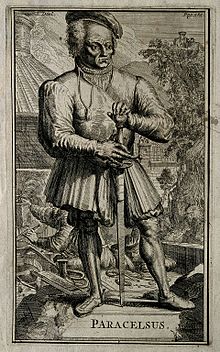
Many people have been astounded by the enigmatic prophecies of the great genius, the Swiss Filippus Aureolus Theophrastus Bombastus von Hohenheim, living in the 16th century. The jewish kabbalist Eliphas Lévi, the French occultist – felt that this text should be left to the experts. In turn their interest in suppressing the information generated much greater interest.
By a superficial look at these prophecies Paracelsus mostly talks to the evil rulers of the world, the hidden rulers without a head(identity). In due time these evil men will be given a head(an identity) and they will suffer the consequences of all the evil that they have inflicted on others. It seems like the Kabbalists/Luciferians were shocked by these prophecies given their great interest in them.
At the very end of his prophecies the innocent children will dance from joy and the creator can finally take his well deserved rest from the brutal suffering inflicted upon him. The world will be harmonized, united and people will go to their real homes and live with the people they belong with. The key is to improve one´s heart and become as innocent and joyful as little children.
In fact we are all children of the same creator and we don´t need to worry too much about human affairs eventhough we might think that we know many things when we become old. What must happen will happen in the human world and goodness will always prevail in the end. The only question is how many lives that will be lost in the process of making goodness victorious.
Plato once said: “Nothing in the affairs of men is worthy of great anxiety.”
DIXI

The First Figure
‘What a thing is internally is shown by its outward sign. As Nature signs her own so doth Magic. Thou has been signed as a devourer of all who have to do with thee. Blessed is he that is unsoiled of thee for thou leavest none in peace. Magic hath considered thee well and given thee thy due, but as thy beauty is only beheld and not the signs, therefore thou devourest all that touch thee. For beauty and not goodness is sought of thee.’

The Second Figure
‘A flower groweth to the destined height. He that causeth her to grow also causeth her to fade. This happens to thee, for Magic hath therewith adorned thee, that thy coming up should be known, and also how thou has come to nought. For before thou wast, Magic hath known thee and therefore compared thee to a flower, that to-day is in bloom and to-morrow is withered. Wisdom and Fear of God would have preserved thee, but thou has overlooked it, thine own wisdom hath seduced thee.’
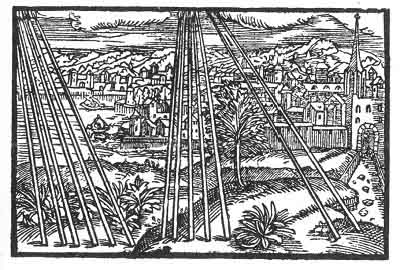
The Third Figure
‘In good peace hast thou been sitting, but thou hast not known it, and hast allowed thyself to be moved. Thy wilfulness hath overturned and divided thee and no more shalt thou have thy former glory. Therefore art thou humbled and hast again become what thou wast formerly. Thou shouldst have been of aid and use to the whole world, and shouldst have set at rest others as well as thyself, but thou hast been seduced by what was rejected by thy forefathers. Although thou wilt repent, yet no one will rejoice through thee.’
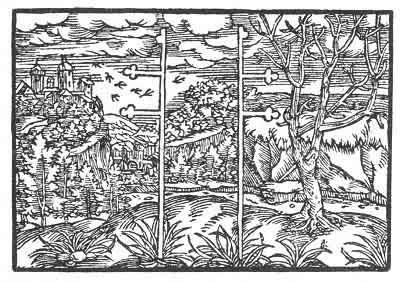
The Fourth Figure
‘Thou hast divided duty into left and right, as if it were oppressing thee. Both sides will cause thee anxiety and hatred shall altogether overcome thee. For a harlot divideth her wantonness and for a while she hath her way, but woe to her when her deceit is discovered. Then cometh true the saying, “no love without pain.” Although thou didst mightily rejoice that thou art without a head, a head shall be placed upon thee and thou shall become a limb, though thou art not accustomed to it. But against thy will shalt thou swallow and eat what is not thy natural food.’
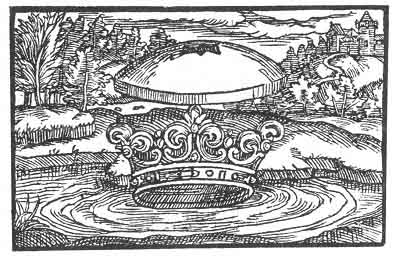
The Fifth Figure
‘Thou hast not had the wisdom of thy crown, but has turned against the way of the crown, and hast done much evil. A stone shall fall upon thee that will press thee hard against thy will. For thou hast shed innocent blood and wast unwilling to know that which thou shouldst have known and what belongeth to a crown. He whom thou hast despised shall visit thee from the South and from the East, ere thou canst count two or three, and having recourse to thy allies will not avail thee for they themselves will fall.’
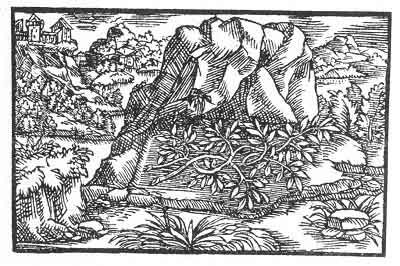
The Sixth Figure
‘Thy flavour is strong, not wholesome and pleasant to everyone. Therefore, will thine enemies, to whom thou art not wholesome, cast a shadow and dry thee up, that thou mayest become temperate, and that thy fruit may not grow from thee as thou now vainly imaginest. For thou wilt have to give way to one whom thou knowest not. At the beginning thou wast very bold, and as a hero hast thou uplifted thyself. But thy undertaking hath divided thy comrades and what is divided hath no permanence. Still thou shalt retain a praise and a victory, for thou has known thyself.’
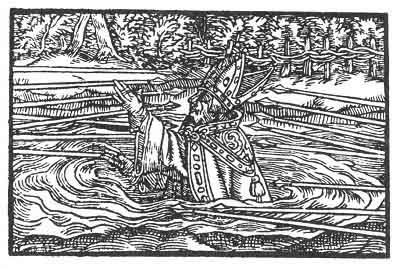
The Seventh Figure
‘Because from time to time thou hast been self-willed thou art predestined to be surrounded by much adversity. For thou hast not considered of thyself how thou art prefigured magically under the symbol of a stone, as both fat and lean. Thou dost not know it, therefore thou fallest beneath the punishment that hath broken up all empires. Had thy pretended wisdom and understanding been thine own thou wouldst have been beyond disaster, and moreover other empires would have taken thee as a mirror. But it is not so, therefore thy wisdom proveth to be a folly at this time.’
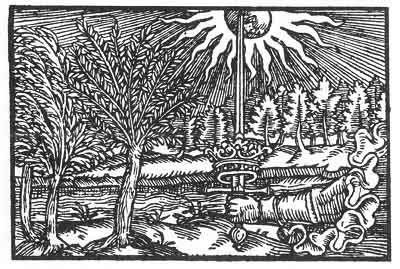
The Eighth Figure
‘Who is he that knoweth on whom the Sun shines, or to whom it shall give, what man by himself can in no wise take? Therefore because it is in the hand of God and He giveth it to whom He wills, thence follows it that man’s resistance is in vain. For the hour hath come that thou shalt cease to be, notwithstanding thy strength, thy allies, thy power. For all thou hast established shall fall with thee, thou shalt delude thyself and others to thy own pity.’
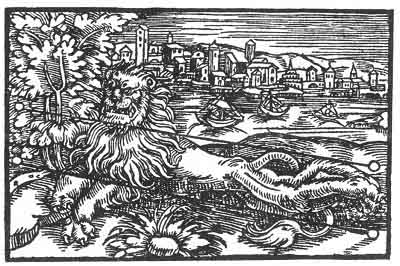
The Ninth Figure
‘Although God hath ordained that people should fear and be in terror of thee, yet there is a rod awaiting thee, that at the time shall smite thy back in such a wise as thou wilt not be able to endure, and they will say with amazement: Who would have thought that he would thus be brought to silence? It would have well become thee to observe moderation, and not as is now made manifest, to appear to be what thou art not, but to consider the end. This will make thee lame and crooked, that thou and thy followers shall with pain lament to each other.’

The Tenth Figure
‘Thine is not a wedding garment, Magic has opened thy heart, and had made thee known. Therefore even as gold and silver must be refined from blemish, and tested, even seven times more severely than gold and silver is cleansed of its dross by fire, must thou be tried. It were well for thee to consider in thyself what was thy beginning, when thy neighbours brought thee up, and showed more kindness unto thee than was thy due, whereon thou hast presumed. This is demanded of thee. Thy transient wealth belongeth to another.’

The Eleventh Figure
‘Although the sun did once shine upon thee, and thou hast glutted thyself with food and plunder, and wast sitting among the honeycombs, yet thou hast not wisely considered the end, and hast forgotten the winter; therefore he taketh away thy pleasure, and will compel thee to suck thine own paws. For as thou art bear-like, and has no further reason, Magic hath driven thee into the toils that thou shouldst be known. But if the wit of man had been thine, the winter would not have overtaken thee.’
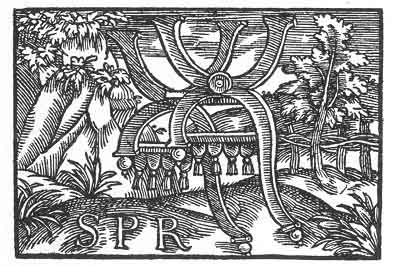
The Twelfth Figure
‘Although one may seat himself securely, yet there is no chair that may not fall, and also he that sitteth thereon. And thou seatest thyself upon this chair but thou shouldst not be thereon. Thou shouldst be below and not above. For thou art a burthen and an unbearable yoke, therefore falls S. P. Thou hast seated thyself thereon and he hath paid thee and given thee the reward thou was seeking: Temporal honour and praise: and these thou hast gathered all together in thyself and swallowed them up. Therefore as a temporal thing thou must also pass away.’

The Thirteenth Figure
‘Too much kindness giveth too much evil, when the evil despiseth the kindness and the folly thereof allows it to advance in its undertaking. But it advanceth the wrong way, and it shall happen as to grass that is fully grown, it is mowed off and taken to where it should be. But if thou hadst been provident, and considered the end, thou wouldst see thy misery and know thyself. Nay, then, as thou willest it, shall it take its reward and its end, as thou hast been seeking it, and thy wisdom shall come to thee as a mockery.’
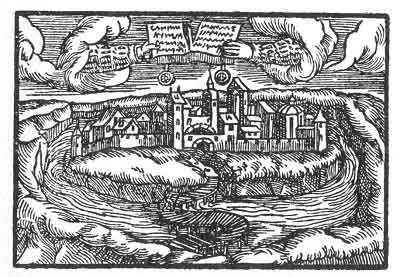
The Fourteenth Figure
‘Giving too much out of hand bringeth sorrow and want to the giver; for if it fail he shall be beaten with his own weapons. Therefore as such overmuch giving away hath made thee proud, thy pride shall have a time and term where it goeth thus far and no farther; then shall all be torn up, and thou must, have nothing more. But if thou hadst considered that no one should set himself against the poor, and hadst also recognised thy liberty to be against thy neighbour, thou wouldst have abstained therefrom. But thy own heart hath seduced thee and thy wisdom hath been reckoned openly as a folly.’
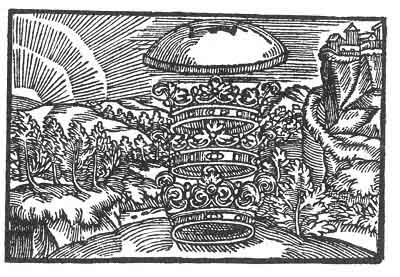
The Fifteenth Figure
‘Nothing is so good that it may not also become evil if it ever is without a head. To be without a head giveth pride and that bringeth forth no good. Therefore shall a head be placed upon thee that thou shalt become a limb, and it will press heavy upon thee, that thou shalt have to carry the head with the other limbs. It is high enough but it would be higher, didst thou but understand it. Thou shalt encounter those whom thou hast not expected, and thy great Council will cause confusion. But when thou sleepest will union take place.’
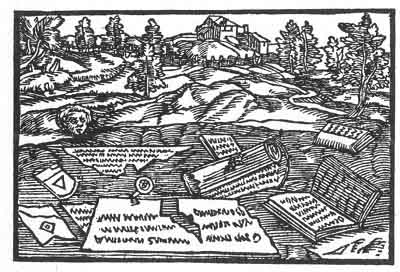
The Sixteenth Figure
‘A child that goes to school and learns, when it arrives at years of discretion is ashamed of its childish work and destroys it. Thus shall it also happen to thee. As thou writest in such a manner thine own work shall be nought. For which reason there will be much labour for nought and in vain. For the time teacheth and giveth knowledge that not every pearl is a true pearl that is alleged so to be. Therefore a hand shall fall upon thee that will tear thee to shreds.’
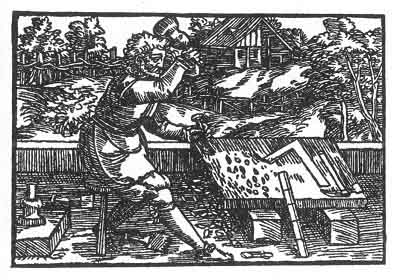
The Seventeenth Figure
‘He who buildeth a house should guard it, that when the enemy cometh it may not be destroyed. Its destruction should also be guarded that it may not be rebuilt, and that the folly of both may not be laughed at. Thus what hath been broken up is again rebuilt. Such things are done by children of men who do not consider the end. They erect, ornament and decorate, forgetting that their work is subject to destruction and again to restoration. At present all is still fragile, moreover they do not build on a rock but upon the sand.’
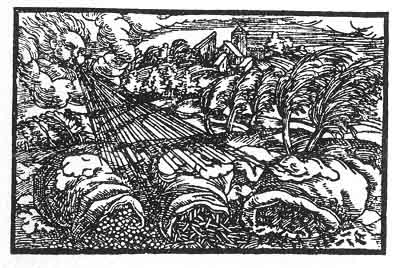
The Eighteenth Figure
‘The eagle doth not grow out of thee, therefore shall He send a wind unto thee that will repress thee and thy young. Although it may go well with thee and thou sayest to thyself: My soul, thou hast all thou desirest and wishest for, what is there that may not be thine? Thou art sitting in Paradise. While thou art thinking it thus with thee, and there is nothing contrary, in thy greatest councils and rejoicings, the Deluge shall burst in upon thee, and the rough South Wind shall blow thee away as dust off the earth. For not in pleasure and wealth are we created but in the vale of tears. This thou hast forgotten.’
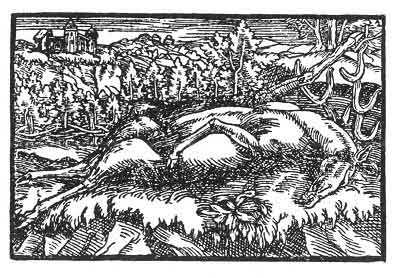
The Nineteenth Figure
‘Thou art leaping about in thy garden and art well pleased with thyself; but giving up thy wisdom and following thy pleasure thou makest bad use of thy leapings. Therefore shall it happen to thee even as thou art lying there, and those that should be thy peace will hunt thee and force thee to leap high. But take thought with thyself and consider that human things are vain. Then wouldst thou become altogether changed and wouldest be safe from the misfortune into which thou doest daily walk. Bethink thyself that pride and ill-manners never ended well.
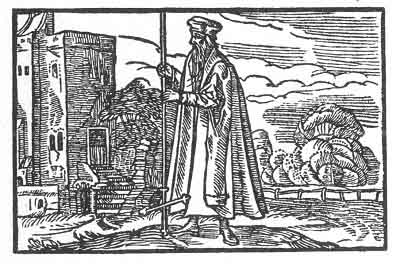
The Twentieth Figure
‘A thing standeth upright as long as it can be upheld; but when man alone uplifteth, then in its time, the highest will become lowest. In this wise shall man set his wisdom against the earth and bury it therein, from whence it hath come, and it shall give way to another. For human wisdom may last for a time. She is compared to a flower in the field, that is lovely and pleasing in herself. But the flower doth not remain, much less human wisdom. It is said “Time bringeth roses,” but these also fade. Thus shall it happen to thee, because thou art of thyself.’
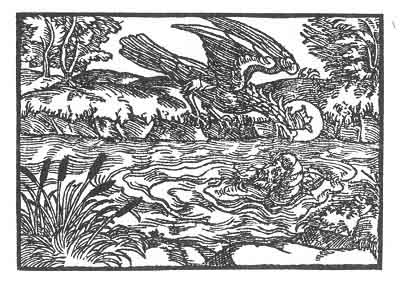
The Twenty-First Figure
‘When rest shall come to him, and thy watchers shall be dispersed, and thy limehound shall be wearied and succumb, then shalt thou be afflicted in thine own nest, with thy young, and shalt be forced to give way to him of whom thou hadst supposed that he would give way to thee, and thou shalt have to leave thy eggs and nest. Thus shall happen to thee, that thou and thine shall be ensnared together in the meshes thou has laid for others, and never again shalt thou be what thou wast formerly. And the children that were thine shall no more be thine. Thy robe shall clothe thine enemy, who will despise thee.’
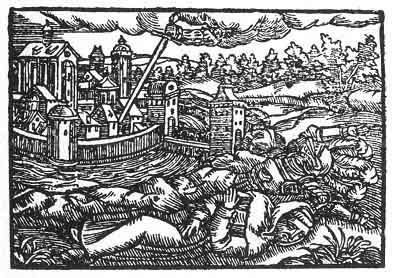
The Twenty-Second Figure
‘Although thou hast not wholly revealed thy heart, yet there is nothing that in its time will remain secret and not be revealed. Then shalt thou become known to him that should know thee. For thou didst and wouldst presume to subjugate the soft in silken and the hard in iron clothing, and wast thinking in thy councils: Now may we not what we would, who are they that shall prevent us? Nay, truly, it will be the soft at first, the iron afterward, but it will cost thine own blood. Didst thou but think of humility, not of the kingdom of this world, how well would it be with thee.’
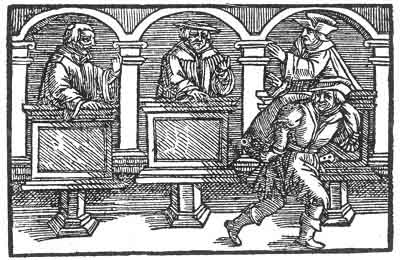
The Twenty-Third Figure
‘As there are three persons in the Godhead, comprising but one number, thus should also men become united only in one number. But, where this does not come to pass then is fulfilled the saying: every empire that is divided in itself must pass away. Thus no empire passeth away unless it be divided against itself. The wisest construction of a house and confederation of an empire is, when they conduct themselves as one and act accordingly, so that the number may never be divided. For what can be divided is unstable and vain, and one disputes with another. But rejoice, for thou shalt become one.’
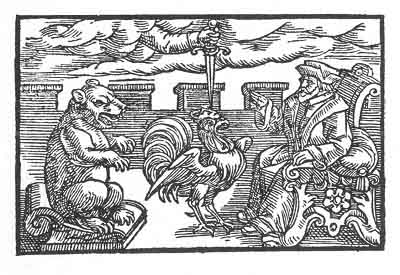
The Twenty-Fourth Figure
‘What is it, or what does it help you that ye combine together and do not consider that ye are contrary in soul and heart? Behold only how ye are externally marked by your garments, even so are ye also internally. Ye should not be as beasts but as men, but as ye are not so, he will rule you that is above you, of whom stands written: give unto him what to him belongs. For no bestial reason is permanent, only that reason remaineth which is destined and ordained by God. This falleth in due time, thus is your council destroyed.’
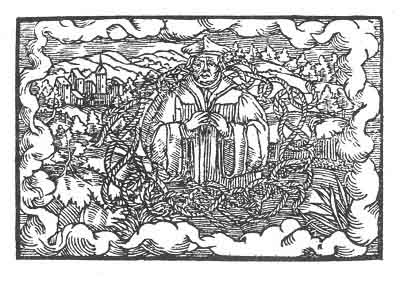
The Twenty-Fifth Figure
‘A thing must be understood as certain and true in order to be known without any doubt. But for this reason, that finite knowledge had faults and defects in thy design, therefore has thou been strangled in thine own doubts. Thou hast supposed that there is no need for closing with the true seal, and hast thought to be a seal thyself; but therein thou wast in error and art not what thou hast supposed thyself to be. This will give thee a miserable death. For thou hast lived on and on in doubt, and others with thee have built upon sand. They have wept, and thou shalt weep yet more.’
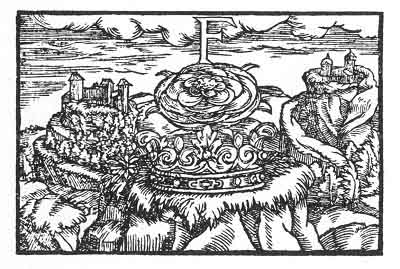
The Twenty-Sixth Figure
‘The Sybil hath been mindful of thee when she placed the “F,” and right well art thou now standing in the rose; for thou art ripe and time hath brought thee. What the Sybil saith of thee shall be accomplished and even more shall be said of thee. The summer that bringeth roses is that contrary time wherein all things are divided; which is an indication that man was building on sand. This must pass away, and thou shalt set it upon the rock that many will be astounded. For when the time cometh, also therewith cometh that wherefore the time hath come.’
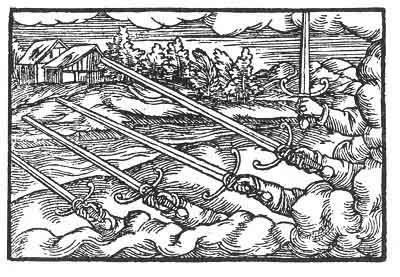
The Twenty-Seventh Figure
‘It hath been forgotten that many heads rule badly, and that also only one should rule and not more. This is the cause that they have split up and parted, each one seeking his own opportunity. But as it is not right to seek one’s own opportunity, but that each should serve the other, and seek to be useful to the other, and leave his own, as doth indeed but seldom happen, for this reason they will be put down; and to whom it is destined to be united, he shall be foremost, and under him shall rejoice those who have been long afflicted and distressed.’
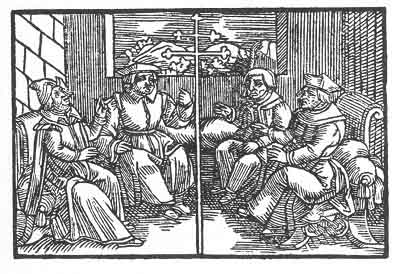
The Twenty-Eighth Figure
‘There will be no common voice, therefore it will be in vain that the five consult together. Have care of the futureforty-two and a little before and after will he come and do as he pleaseth, and bend you like a branch, and gird you in a wise such as will not please you. For thy council is not of him who is sought nor of whom thou deemest it to be. If ye would consider that there is no wisdom at all in man when he throweth off the yoke, he would himself be opposed to it and would not throw off the yoke, but would think of the heavy reckoning in the day of wrath.’
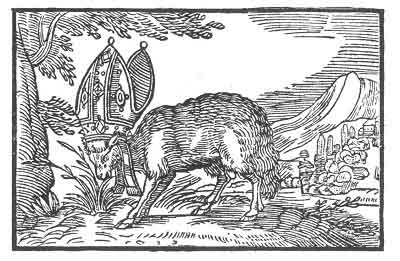
The Twenty-Ninth Figure
‘Thus shall it come to pass that each one will be led into its own pasture. For feeding in strange pasture causeth distress, contention, and misery in this world. As soon as each one cometh into its own stall there shall be unity. For the mouth becometh depraved, feeding according to its lust as it pleaseth the jaws; all that cometh of going into strange pastures. How blessed shall be the hour, and the poverty, that will come and shall ordain each one to its meadow, not far from the year XXXXIII.’
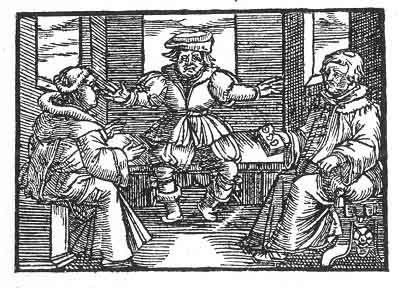
The Thirtieth Figure
‘Thou hast often assembled, and much congregated, but the enemy was not with thee, therefore all things thou hast resolved were to no purpose and in vain. It must be alone that thou wilt forgo thy claims, and reflect of whom thou art, of whom thou hast learnt, and what thou wouldst do if thou wert to turn aside, and wouldst acknowledge thyself and others; then wouldst thou cease. But as thou desirest to be what thou shouldst not be, and wilt sit upon the chair of Saint Peter, and whereas the same must fall; therefore thou mayest not continue in thy plots, for he shall turn aside thy design who is thy master.’
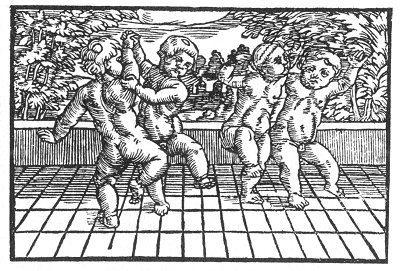
The Thirty-First Figure
‘There shall be such a total renewal and change that they will be as children that know nothing of the cunning and intrigues of the old. This shall be when they count LX, a little less, but not more. * Therefore it is well that we should remember that the time appeareth to be a long time according to a man’s lifetime, but as a short time should we observe and consider it. For to cause so much to fall and to be overthrown, with such a raging and roaring lion that has so long grown, this cannot be done in a moment. But how well shall it be with him that shall be as a little child, for human knowledge causeth but unrest and grief.’
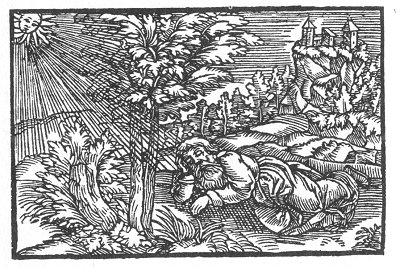
The Thirty-Second Figure
‘Thou hast taken great trouble, therefore it is but just that after thy day’s work thou shouldst have rest and repose. Blessed is he that is born during sleep; he shall know no evil. For thou hast purified with great care, and hast endured much in thy days, Thee no one hath overcome, and no one shall there be that will again awaken thee, even as long as there is counted as much as thine enemies have counted from their eyrie.’
